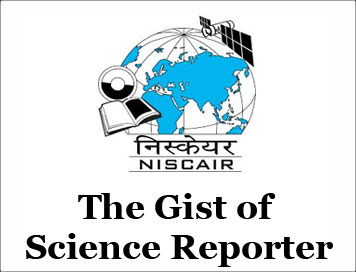(HOT) UPSC Current Affairs 2025 PDF
NEW! The Gist (JAN-2026) | E-BOOKS
(The Gist of Science Reporter) Air Pollution and Public Health: Challenges and Interventions [JUNE-2020]
(The Gist of Science Reporter) Air Pollution and Public Health: Challenges and Interventions
[JUNE-2020]
Air Pollution and Public Health: Challenges and Interventions
Challenges:
- Air Pollution: Know your Enemy — Insights from Around the Globe
- Air Pollution: A Burden on One’s Health
- Indoor Air Pollution: A Devil at Home?
- Air Pollution & Respiratory Diseases: Turning Acute to Chronic
- Alarming Rise of Cancer: Is Air Pollution a Contributor?
- Impact of Air Pollution on Reproductive Health
- Mitigation Strategies and Role of Public-Private Partnership
- Recommendations for Sustainable Solutions
Interventions:
- Appropriate policies should be adopted and programmes initiated to control air pollution resulting from emissions of oxides of carbon, sulphur & nitrogen; hydrocarbons and particulate matter, from stationary and mobile sources to achieve acceptable levels of ambient air quality.
- Efforts should be made to have continuous monitoring systems of primary and secondary pollutants and their sources to provide precise information about the level of air pollution in a region-specific manner, including hotspots, to get a clear idea about the intensity and magnitude of the problem.
- Member countries should share information about emissions of different categories of air pollutants from various sources.
- In order to precisely establish the cause-effect relationship, efforts should be made to continuously monitor and record seasonal fluctuations in air pollution levels and correlate with increased incidents of associated health issues.
- Governments, industries as well as research and healthcare institutions should encourage transdisciplinary, holistic research to study the effects of air pollution on human, animal and plant health.
- The understanding of the concept of ‘One Health’ should be promoted especially in the context of air pollution.
- Special emphasis should be given to conducting in depth analysis of the sources, types, causes and effects of indoor and ambient air pollution.
- Capacity building programs, workshops and training sessions should be conducted to sensitize people about the causes and harmful effects of indoor and ambient air pollution.
- Governments should encourage educational institutions to adopt pedagogical tools in the curriculum in the environment and climate change to increase awareness and sensitize students on the harmful effects of air pollution and their role in minimizing the effects.
- Local health workers and medical practitioners should be encouraged to be involved in epidemiological programs, to create a database of various health issues related to air pollution.
- Governments should encourage and fund start-ups and researchers engaged in designing environment friendly solutions in sectors such as transportation, household cooking, construction, etc. to minimize the emission of air pollutants.
- Appropriate emission control strategies should be adopted on national and international basis, which may include emission standards for various categories of polluters, within a legal framework, and other effective and efficient means of reducing the pollution levels.
- Internationally coordinated research and development programmes should be supported and undertaken aimed at better understanding of the effects of air pollution on humans and the environment, and improving technologies for fossil fuel combustion and control of pollutant emissions.
- Governments in NAM and other developing countries should encourage the use of biofuels and other sources of renewable energy. The focus should also be directed towards waste management and biotreatment of polluted environments.
- All major industrial and infrastructure projects should undergo a human health impact assessment as a part of the approval process.
- Industries should be mandated to adopt ‘Cleaner Technologies’ in their production processes to reduce air pollution at source. Industries should be encouraged with incentives to implement ‘Process Optimization’ and ‘Process Integration’ for mitigation of air pollution.
CLICK HERE TO DOWNLOAD FULL PDF
Study Material for UPSC General Studies Pre Cum Mains
This is Only Sample Material, To Get Full Materials Buy The Gist 1 Year Subscription - "Only PDF" Click Here
Click Here to Download More Free Sample Material
Courtesy: Science Reporter


